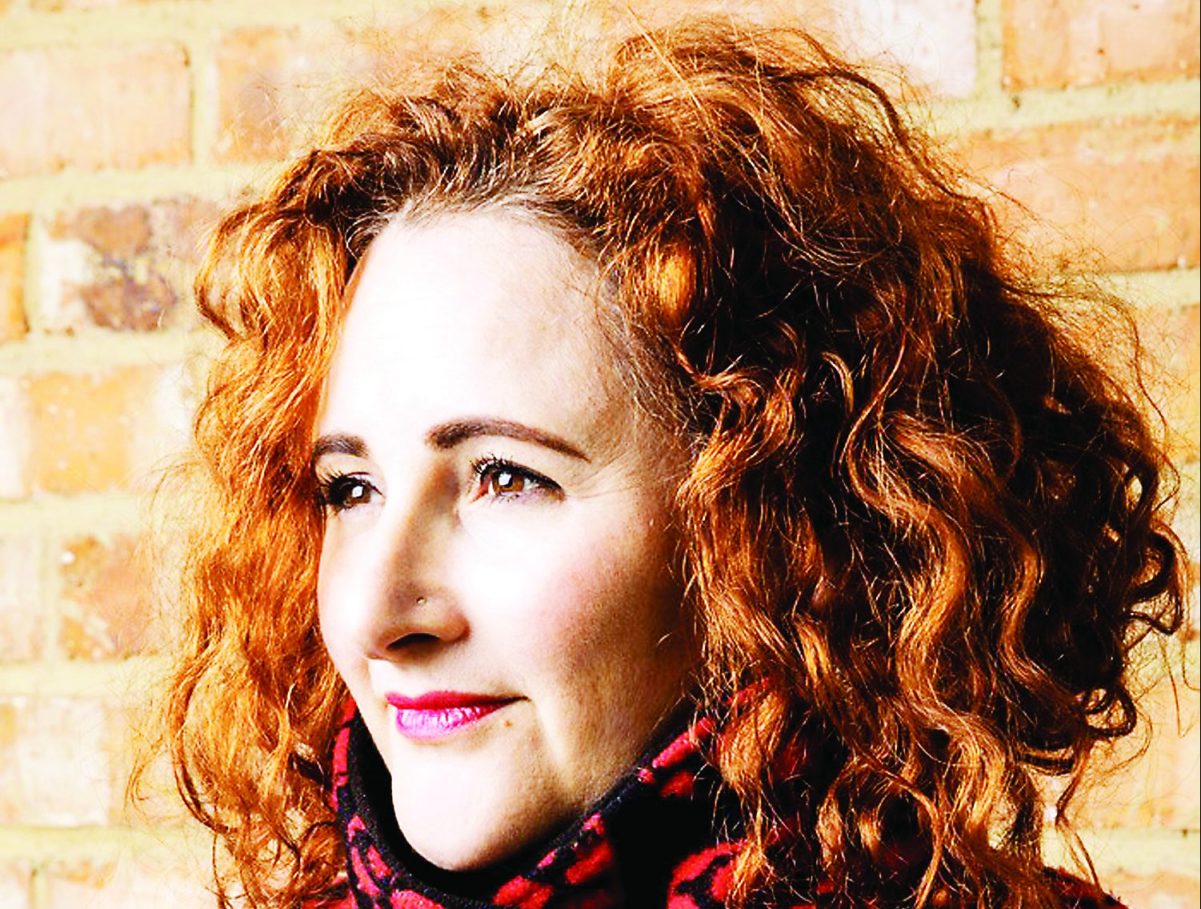
Featured Item

Femicide book exposes uncomfortable truths
Dr Nechama Brodie, journalist, author, fact-checker, producer, and publisher, has just brought out a new book, “Femicide in South Africa”, based on her PhD thesis. We ask her some questions:
Why do a doctorate on femicide?
It started with a fact-checking report I’d done for Africa Check (back in 2013) debunking the myth of white genocide in South Africa. A few weeks after the report was published, I did an interview with one of the Afrikaans newspapers, and I made a comment to the journalist about why false claims about white genocide were problematic, and that white women had more to fear from their intimate partners than they did a stranger in an alleyway.
A few months later, the Freedom Front, Steve Hofmeyer, Sunette Bridges, and some others charged me (and Africa Check) with hate speech at the Human Rights Commission, saying that what I had said was hate speech against white men.
I became interested in how the white right-wing understood femicide, and who was at risk, and assumed the media played a role in that. When I looked for data on how and what the South African media covered about femicide, I couldn’t find it. So, I decided to build it myself.
Why is femicide so high in South Africa?
Our extremely high femicide rate can’t be separated from our extremely high rate of homicide and violent crime. Compounding that, we are a deeply misogynistic country with a high rate of violence against women, a country where violence is seen as a legitimate means of achieving an end, and where women are easy and even preferred targets.
The ways in which women are killed has a different profile to the ways in which men are killed. This is why it’s still important to study femicide as a unique and specific phenomenon within a broader and bigger problem.
What was the difference between what you thought you would discover, and what you actually discovered about femicide in South Africa?
There is quite a lot of other research, globally – mostly from the global north – about media coverage of homicide and intimate-partner femicide. My research showed that many of these trends were consistent in South Africa, but my data also showed exactly how it played out.
For example, I could show that less than 20% of actual femicides ever made it into the news. And that intimate-partner killings, which make up the majority of real femicides, only made up a third of newspaper coverage.
What was interesting more than surprising was to discover that in most Afrikaans-language newspapers, more than 50% of femicide coverage was about white victims – although less than 20% of victims in the press were white. If you read only Afrikaans-language media, you might, indeed, believe a white genocide is occurring, and remain unaware of the majority of other femicide victims.
What do you want to achieve through this book?
So much of the femicide response in South Africa is driven by emotion, rhetoric, or bureaucracy. And none of these, in my view, effectively further the actual, practical strategies, and steps that need to be taken.
I always believe that better information helps us make better decisions and helps us ask better questions. I want people to understand femicide for what it is, not what they think it is based on a hashtag, a tweet, or a headline.
Has writing this book changed the way you feel about being a woman in South Africa, or simply living here?
In all honestly, probably yes. I have become a lot more cynical about personal safety in South Africa, and also about being a woman here. My research hasn’t given me any optimism about where we are at, or where we are going.
At best, maybe I can say I have a more nuanced view of this violence, and I not only understand but can demonstrate that this problem long predated 1994. The foundations were cast in concrete generations ago.
Blaming the African National Congress or turning it into a racial issue in order to apportion blame isn’t only bigoted, it also fails to understand the problem correctly. That said, the state has done an equally shit job in making its people safe as the previous regime did in many respects.
What do you believe we, as citizens of South Africa, can and should be doing to curtail femicide and gender-based violence (GBV)?
A large part of this is about understanding and acknowledging the deep roots of patriarchy and misogyny in society. Not just in modern South Africa, but pretty much every society for thousands of years. The Jewish community is no exception. Many communities and households still treat women as second-class (and use scripture to justify this, maybe with a placatory claim that it’s because of women’s innate holiness and other platitudes), or as possessions.
How do you fix thousands of years of men being told it’s okay to literally kill your wife if you think she’s cheated on you? This is hard-baked into human society. So that’s one part of it. I still get men eyerolling and making sarcastic comments if I say I’m a feminist.
When you look at media reports from the late 1970s, when they ask (rhetorically) why some men kill their wives, they talk about the terrible stress men are under, with women taking their jobs and becoming more empowered, with growing divorce rates, and so on. It’s astounding that the mere suggestion that a woman should have the same autonomy as a man is considered sufficiently mitigating if a man can’t handle it and needs to kill someone.
Men also need to stop being the lookouts for other men who commit violence. If you have a friend who hits his wife or verbally abuses her and you say nothing when you observe it, you’re the lookout at the door. You are enabling this, directly, even if you’re not doing the beating yourself. Men who stay silent in the face of what’s happening, are as bad as the ones doing the crimes.
Beyond that, I think that we need to support strategies that consist of smaller, reasonable, practical steps that will mitigate some of the violence. Just putting in streetlights (in poorly lit informal settlements) reduces violent crime. Or safe transport for women. Or training police officers to properly document charges of GBV, and to properly investigate these cases so they can be prosecuted in court. These are small steps that can be achieved. Moaning on social media that the “president must stop GBV” might be cathartic, but achieves nothing.
How can we change the way the media addresses femicide?
By not blaming the victim for her own death. We do this when we write a story that makes out that the male perpetrator was somehow provoked beyond reason (this happens in intimate-partner cases, where the press will almost joke about love triangles, and jilted lovers). We shouldn’t blame sex workers for their own murders. Or women who were drinking, or on their way home from the pub or shebeen. Nobody deserves or is asking for it.
Another important thing we could do would be to follow up on court cases, convictions, and sentencing, which sometimes happens years after an incident.
What should the government do to change this status quo?
Resource the police better. Deal with violence against women within the police force. Remove firearms from police and security officers and in fact any man accused of violence against women. Tighten up gun-control laws again. Train police officers to properly document and investigate femicides. Resource the National Prosecuting Authority so it can effectively prosecute these cases. Give proper sentences to perpetrators (and also deal somehow with the terrible prison system).
What was the toughest part for you in writing this book, and how did you deal with that?
It’s not possible to do this work without learning how to switch on some kind of autopilot when you read about the ways in which men kill women. I have to switch off on some level, or I wouldn’t manage. Stupid things get through that façade, like reading about a man who killed his wife for insurance money and had it faked to look like a hijacking, and who got parole last year in spite of it being against the wishes of his own children. Or parents who sat through every day of the trial of their daughter’s murderer. That gets me.
You have written a number of extremely different books, from novels, to books on Johannesburg, to this one. What’s next for Dr Nechama Brodie?
I actually don’t know! I’m working on new homicide research – not just femicide – and there are two more crime-related research books I’d like to pursue, but I need to scope out what readers are most interested in and how it ties in with my academic research.
And I’m hoping for some more novels, but at the moment all of this is in my head and nothing is on paper yet.










